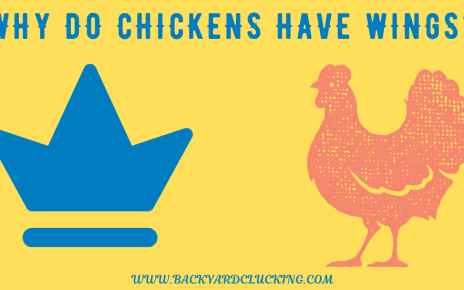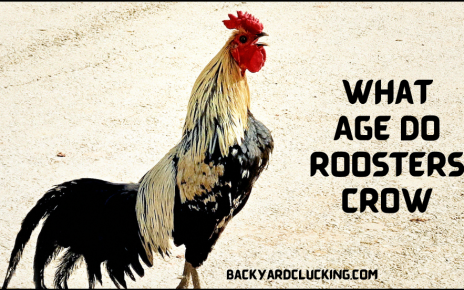Have you ever wondered how chickens can lay eggs? It turns out that they have a special place that allows them to do this – their cloaca. Not only that, but they lay their eggs from their butts. Whether or not this is true might be debatable, but it’s an exciting topic to explore further. Let’s examine nature’s most peculiar mysteries: Can chickens lay eggs out of their anus?
Do Chickens Lay Eggs Out Of Their Anus?
Contrary to popular belief, chickens don’t lay eggs from their anus. Chickens have an organ called the oviduct that makes eggs.
Eggs are released through this organ, not the digestive system. The idea that eggs come from the anus is not valid.
The oviduct is a long, winding tube that starts at the chicken’s ovary and ends at the cloaca. The ovary produces yolks, which are then transported through the oviduct, fertilized (if the hen has mated), and formed into an egg. This process takes around 25 hours to complete.
Chickens have one oviduct but have two ovaries. The left one is functional and makes eggs. The right one is smaller and non-functional.
The egg then goes through the oviduct, getting albumen (egg white) and membranes. The egg is then covered in a shell.
The reproductive system of a chicken
- Ovaries: Like other birds, chickens have only one functional ovary (left). This is where the yolk formation happens. There are thousands of tiny ova or yolks in this ovary. When a yolk matures, it is released into the oviduct.
- Oviduct: The oviduct is a long tube where the egg will travel for about 25 hours. There are five sections: 1. Infundibulum 2. Magnum 3. Isthmus 4. uterus 5. Vagina.
- Cloaca: The cloaca is a hole in birds that lets urine, food, and sex come out. In chickens, it’s where eggs are laid.
Understanding the Anatomy of Chickens
Chickens, like all birds, possess a unique anatomical structure. Their bodies are divided into several key parts: the head, neck, body, wings, and legs.
People often wonder if chickens lay eggs out of their anus. It’s not because they have an anus but because they have a cloaca. This single opening is used for many things, like laying eggs, excreting, and mating.
The All-Purpose Outlet: Discover the Incredible Versatility of the Cloaca
The cloaca is a chamber that ends in an opening. It is where the digestive, urinary, and reproductive tracts come together, which makes it worthwhile for more than just one thing. For example, everything that comes from a chicken goes through this one exit, leading to the mistaken belief that chickens lay eggs from their anus.
However, it’s important to note that the egg does not come into contact with the waste in the cloaca.
The process of laying eggs
The chicken’s egg-laying process starts in the ovary. The yolk develops there. Once it’s mature, it’s released into the oviduct. In the oviduct, the yolk is covered with albumen (egg white), membranes, and the shell.
The egg is laid through the cloaca. But there’s a way to keep the egg clean, even though the cloaca does multiple things. When the chicken lays an egg, the reproductive tract turns inside out so the egg won’t touch the waste area.
Maintaining cleanliness is crucial when it comes to raising chickens
Chickens still get health issues and infections, like vent gleet and egg binding. This can happen because of unhygienic conditions, a lack of nutrition, or even stress. As a result, chicken keepers must ensure the flock has clean living conditions, provides a balanced diet, and monitor for signs of health issues.
A balanced diet is crucial for healthy egg-laying
A healthy diet for chickens includes protein, vitamins, and minerals. They need a good-quality poultry pellet or mash as the primary source of nutrition. They also supplement their diet with grains, green vegetables, and treats. It’s essential to provide a source of calcium, such as oyster shells or crushed eggshells, as it contributes to strong eggshells.
The Role of Lifestyle in Egg Production
Lifestyle is just as important as diet. Chickens need access to natural daylight, which makes them produce more eggs. They also need a safe, calm environment to reduce stress, which affects egg production.
To keep chickens happy and productive, provide them with: -A spacious coop and run -Clean water -Regular health checks -Handling and interaction. This will also help reduce stress and catch potential health issues early.
There are many myths about chicken egg-laying. For example, people think that chickens can lay unlimited eggs. This isn’t true. After their first year of egg-laying, a chicken’s egg production decreases. Another popular myth is that a rooster is required for a hen to lay eggs. While a rooster is necessary for fertilization and hatching chicks, hens can lay unfertilized eggs without a rooster.
Everyone, especially those raising chickens or eating eggs, must know the myths and misconceptions. This will help them make good decisions that ensure the chickens’ health and well-being, leading to more sustainable and ethical egg production.
FAQs
What hole do chicken eggs come from?
Chicken eggs come from a chicken’s vent, also referred to as the cloaca. This single opening serves as the exit point for the reproductive, digestive, and urinary systems. Hence, both eggs and waste are expelled from this area.
Where do bird eggs come out?
Bird eggs emerge from the same passage used for excretion, called the cloaca. Despite this, the processes are entirely separate. The egg doesn’t come into contact with waste due to a unique ‘chicken internal design’.
How does chicken come out of egg?
A chicken emerging from an egg is called ‘hatching’. The chick inside the egg starts by breaking the internal membrane with its ‘egg tooth’. Then, it begins to crack the more rigid outer shell, a process called ‘pipping’, until it can push its way out.
Conclusion
It’s wrong to say chickens lay eggs out of their anus. This is because chickens have a unique way of ensuring the egg doesn’t touch waste during egg-laying.
Also, know that this process is called “cloacal prolapse.” As chicken keepers or consumers of chicken eggs, understanding these facts can help us ensure the health of our feathered friends and contribute to sustainable and ethical poultry practices.


